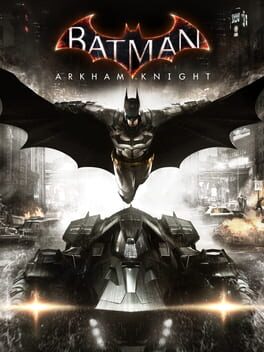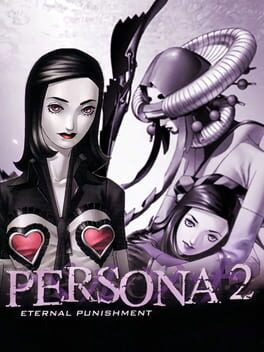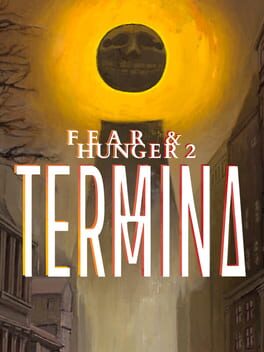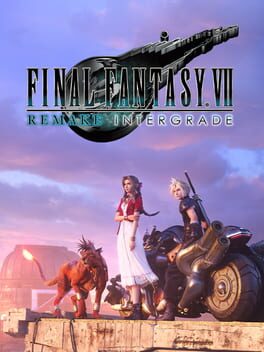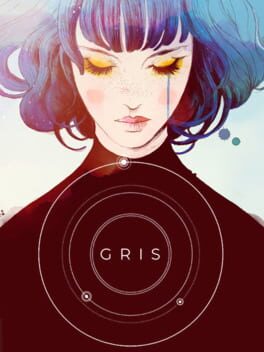MikazeArtz
Bio
PSP/PS2/PS3/Wii U/Switch Lite/PC
★★★★★ -- Perfection
★★★★1/2 -- Masterpiece
★★★★ -- Stellar
★★★1/2 -- Great
★★★ -- Good
★★1/2 -- Average
★★ -- Mediocre
★1/2 -- Bad
★ -- Atrocious
1/2 -- Offensive
PSP/PS2/PS3/Wii U/Switch Lite/PC
★★★★★ -- Perfection
★★★★1/2 -- Masterpiece
★★★★ -- Stellar
★★★1/2 -- Great
★★★ -- Good
★★1/2 -- Average
★★ -- Mediocre
★1/2 -- Bad
★ -- Atrocious
1/2 -- Offensive
Badges

Pinged
Mentioned by another user

GOTY '23
Participated in the 2023 Game of the Year Event

Noticed
Gained 3+ followers

Shreked
Found the secret ogre page

Gamer
Played 250+ games

2 Years of Service
Being part of the Backloggd community for 2 years

GOTY '22
Participated in the 2022 Game of the Year Event

N00b
Played 100+ games
Favorite Games
417
Total Games Played
025
Played in 2024
084
Games Backloggd
Recently Played See More
Recently Reviewed See More
A platformer with a symbolic and surreal style, not surprisingly created by a Catalan painter named Conrad Roset. He is a true artist, out of the ordinary, who in his paintings conveys that carnal and passionate spirituality typical of Catalonia (and it reminds me of what Dalí said about his homeland). But Gris is not an erotic game; it is a psychological game. Gray is the color of depression, of the senselessness resulting from loss, and each level of the game is associated with a specific color/emotion.
The story begins with the protagonist being held up by the hand of a female statue, perhaps her mother, perhaps her companion, perhaps herself. But at some point, this statue crumbles: the support is no longer there. Like a tear in the abyss, the sense of loss, absence, fragmentation, and crisis emerges. When the player takes control of the protagonist, she can barely walk. And as the game progresses through the levels, she will acquire more and more abilities, each linked to a specific state of existential distress, leading to healing (starting from anger, translated into the ability to transform into a boulder capable of shattering rocks, to the healing song because the only true cure for the "deadly disease" of living is art).
Returning to the discussion about Catalonia, visually, Gris is a triumph of symbols of nature, with all those strange trees, seascapes, flowers of a thousand colors, and forest creatures that seem to guide the protagonist towards healing. The symbolism of the tree of life refers to Jung and certain paintings by Klimt; the frightening black bird/fish/dark mother in the shadows represents primal unease, the ghosts of the past returning; the omnipresent squaring of the circle, on the other hand, is the most classic symbol of self-completion and unity within fragmentation. The game's developer himself stated that Gris is a sort of self-therapy, a journey of reclaiming one's life following a painful event. There's also nothing to be said about the gameplay: far from being trivial, the game offers many puzzles and challenges, as well as multiple possibilities for interaction with the picturesque environment in which you are immersed from the beginning to the end of the dreamlike journey. It almost feels like playing a sort of Utena or Tenshi no Tamago, works with which Gris shares some stylistic, hermetic, not to mention symbolic choices (growth is always a path guided by pain and its conscious processing, which cannot exist without renouncing the refuge in the stagnation of existential moratorium). And that's it: let the images speak, because too many words, too much reasoning, and too many projections become completely useless at a certain point.
The story begins with the protagonist being held up by the hand of a female statue, perhaps her mother, perhaps her companion, perhaps herself. But at some point, this statue crumbles: the support is no longer there. Like a tear in the abyss, the sense of loss, absence, fragmentation, and crisis emerges. When the player takes control of the protagonist, she can barely walk. And as the game progresses through the levels, she will acquire more and more abilities, each linked to a specific state of existential distress, leading to healing (starting from anger, translated into the ability to transform into a boulder capable of shattering rocks, to the healing song because the only true cure for the "deadly disease" of living is art).
Returning to the discussion about Catalonia, visually, Gris is a triumph of symbols of nature, with all those strange trees, seascapes, flowers of a thousand colors, and forest creatures that seem to guide the protagonist towards healing. The symbolism of the tree of life refers to Jung and certain paintings by Klimt; the frightening black bird/fish/dark mother in the shadows represents primal unease, the ghosts of the past returning; the omnipresent squaring of the circle, on the other hand, is the most classic symbol of self-completion and unity within fragmentation. The game's developer himself stated that Gris is a sort of self-therapy, a journey of reclaiming one's life following a painful event. There's also nothing to be said about the gameplay: far from being trivial, the game offers many puzzles and challenges, as well as multiple possibilities for interaction with the picturesque environment in which you are immersed from the beginning to the end of the dreamlike journey. It almost feels like playing a sort of Utena or Tenshi no Tamago, works with which Gris shares some stylistic, hermetic, not to mention symbolic choices (growth is always a path guided by pain and its conscious processing, which cannot exist without renouncing the refuge in the stagnation of existential moratorium). And that's it: let the images speak, because too many words, too much reasoning, and too many projections become completely useless at a certain point.
It is with the destruction of certainties, with the deluded impression of being determining agents in the universe, that Mobius's message acquires importance and vigor. Knowing the inevitability, was everything we did in vain? It is an open question to which each of us will give an answer after experiencing the final sequences (inspired, among other things, by those of 2001: A Space Odyssey). Another question, however, has a much clearer answer: knowing that exploring planets in search of the secrets of space or eating marshmallows in front of a fire lead to the same consequences, isn't it perhaps an example that reaffirms how important travel is?






